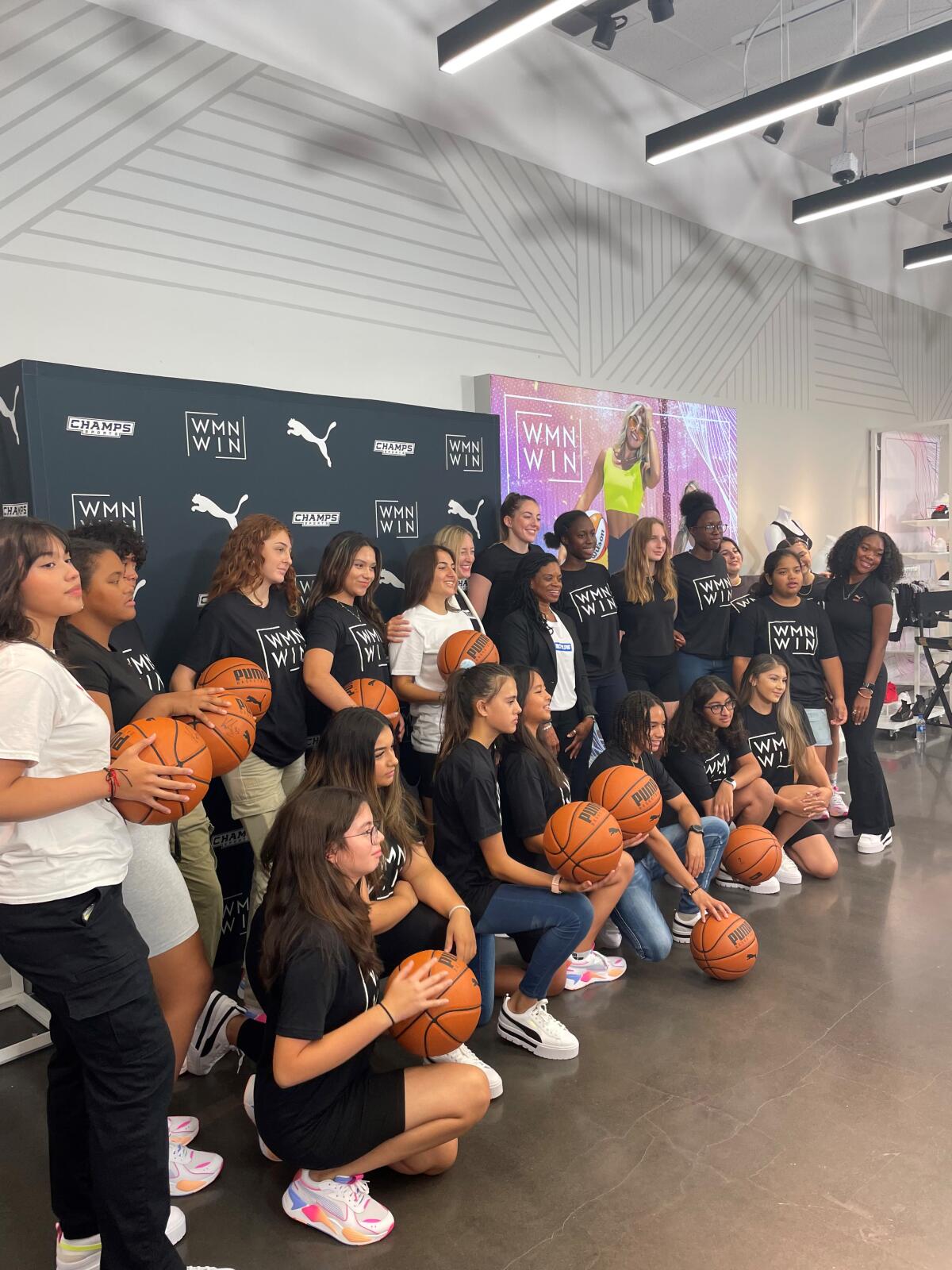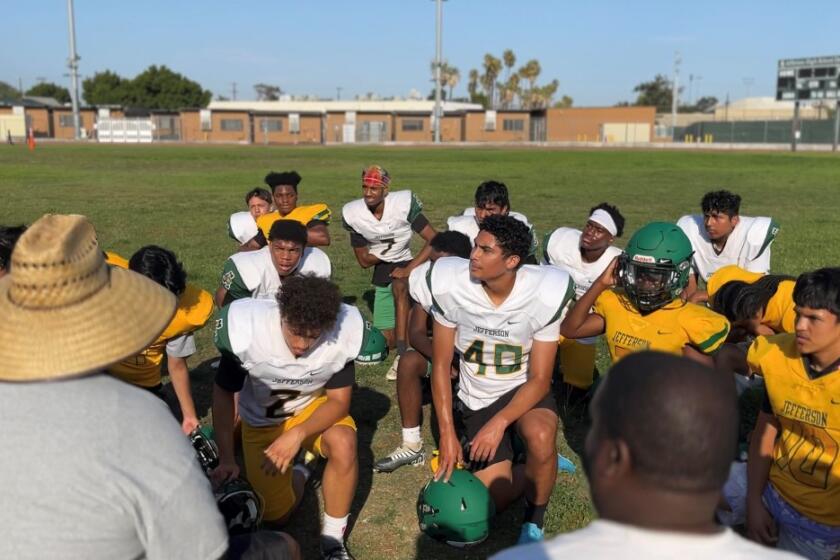Taft girls’ basketball locker room will be refurbished through grant

- Share via
Sophia Tchamkertenian is familiar with the frustration.
When Tchamkertenian was playing junior varsity basketball at Taft, she prepared for games in the school’s general PE room, because the 25-foot-by-30-foot locker room was reserved for varsity players. The JV program wasn’t assigned lockers, so Tchamkertenian and her teammates would stuff their clothes into their backpacks and haul them to games.
“When I moved up [to varsity], it was a huge privilege to even have a space to change,” Tchamkertenian said.
Even on varsity, the team was pushed back to the PE room at the beginning of its season until the girls’ volleyball team finished its season. Meanwhile, assistant principal Neezer McNab said, the football program was getting a new team room.
“My teammates and I, we’ve just gotten used to it — not having certain things that [the boys] do,” Tchamkertenian said.
But now they’ll have something that the boys have.
Get our high school sports newsletter
Prep Rally is devoted to the SoCal high school sports experience, bringing you scores, stories and a behind-the-scenes look at what makes prep sports so popular.
You may occasionally receive promotional content from the Los Angeles Times.
On July 29, Voice in Sport, an organization dedicated to elevating women’s voices, and its partners announced Taft would receive a Title IX Micro Grant of $40,000 to refurbish the girls’ basketball locker room. Those partners include Voice in Sport Foundation, Champs Sports and Puma.
The school isn’t just taking the money and running — the grant is contingent upon Taft working on a number of Title IX-related initiatives to improve equity at the school.
“I’m happy that girls will be able to experience that and like feel like they’re important and like they matter just as much as the guys do,” Tchamkertenian said.
Since Voice in Sport was established in 2020, founder Stefanie Strack has spoken to hundreds of girls at schools around the nation about their lack of Title IX resources. Taft was chosen for the grant because there were “several gaps” between the girls’ and boys’ programs at Taft, Strack said.
“When young girls don’t have a place to change before practice, can you imagine how uncomfortable that makes you feel?” Strack said.
McNab, Taft’s Title IX coordinator, said construction of a new football team room made the Taft girls eligible to receive the grant.
“We were fortunate, because being at a public school, there are only a certain amount of funds that you have allocated,” McNab said.
McNab couldn’t give a timetable for the refurbishment, with the school only recently receiving the grant.
There’s a larger, well-laid plan for the overall partnership between Taft and Voice in Sport.
Among the agreements, Taft will host Title IX training for the athletic community, disclose data on participation and revenue for boys’ and girls’ sports, and conduct Title IX evaluations before and after the new facility is completed. McNab also mentioned separately that she was trying to train and attract more female coaches to the school.
“Taft is stepping up and saying, ‘Hey, we want to do better, we want to understand Title IX better, we want our experience to be better for our young girls,’” Strack said. “They don’t have the funds necessarily coming in, and that’s where we have this partnership.”
A shortage of players continues to be a problem for some L.A.-area high school football programs recovering from the complexities imposed by COVID-19.
Most every school that Voice in Sport examined across Los Angeles had unequal treatment between boys’ and girls’ programs, Strack said. Taft was chosen in particular because of its commitment to action.
Part of that action includes the establishment of a Voice in Sport advocate program, a student-run club that monitors the school’s progress with Title IX education.
Tchamkertenian finds herself the president of an organization that two weeks ago she didn’t know existed. She’s ready to devise plans for other improvements if there’s money left over from the locker room’s renovation.
“I’ve never experienced anything like this before, and I’ve never led a movement of this magnitude,” Tchamkertenian said.
When the 59-year-old McNab grew up, she said, girls were thankful for whatever they were given. Strack echoed the sentiment. Ultimately, the goal of the partnership is to help female athletes like Tchamkertenian feel worthy of that facility and much more.
“It’s going to empower them, and empower the girls to know they are valued just as much [as boys], and you shouldn’t have to be grateful for that,” McNab said.
More to Read
Get our high school sports newsletter
Prep Rally is devoted to the SoCal high school sports experience, bringing you scores, stories and a behind-the-scenes look at what makes prep sports so popular.
You may occasionally receive promotional content from the Los Angeles Times.







